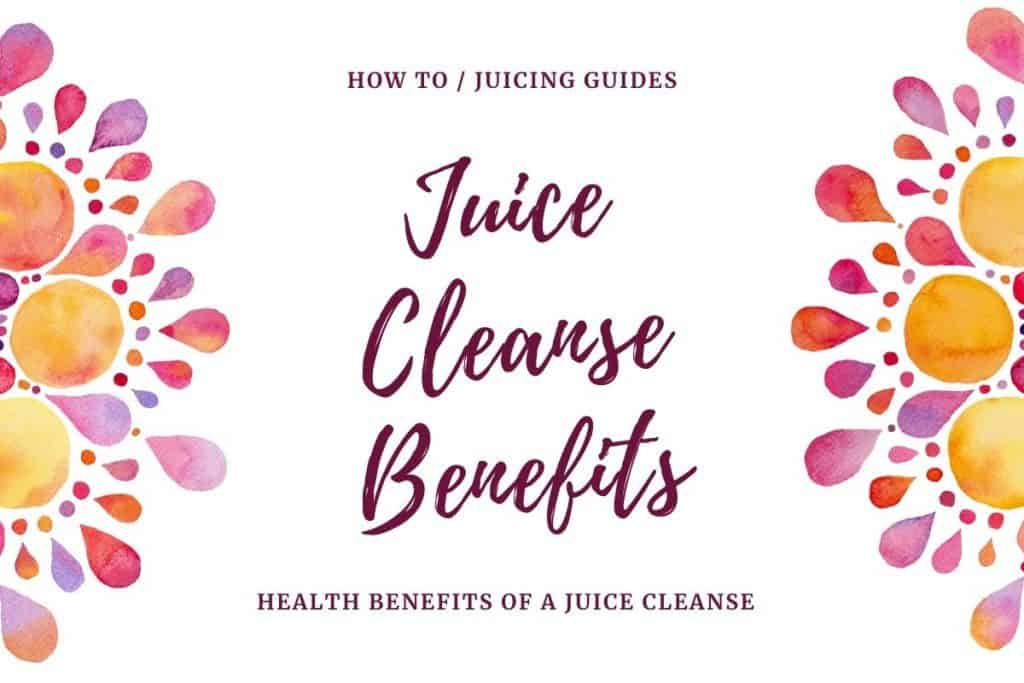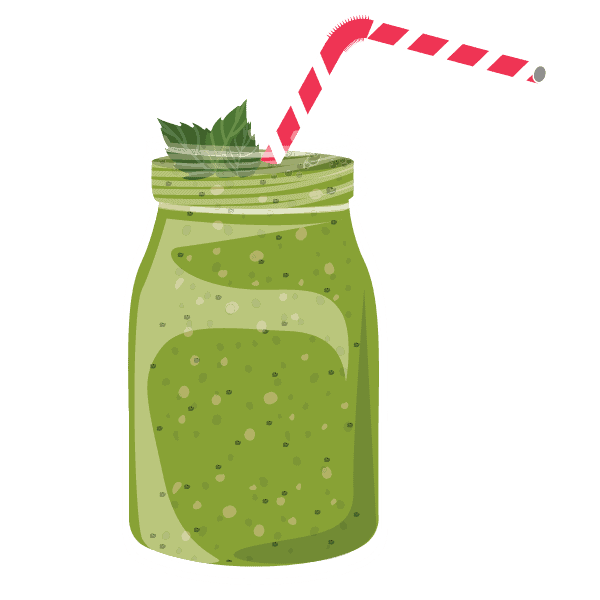Juice cleansing (also referred to as juice fasting) is often a controversial topic. Some are for it, some are against it, particularly when looking at sustainability over time and with longer juice cleanses.
You can make juices that target cleansing a particular organ or body system, or you can focus on a variety of juices, that include nut milks as part of the juice fast.
The latter is how you would undertake a full body cleanse lasting 3 days or more.
Either way, lets take a look at the pros and cons of juice cleansing, then we’ll discuss juice cleansing further.
Pros
- Improved Digestion
- Weight Loss
- Increased Intake of Vitamins and Minerals
- Improvement in overall health and energy
Cons
- Difficult to sustain
- Weight gain post cleanse (depending on what you eat)
- Lacks protein
Health Benefits of a Juice Cleanse
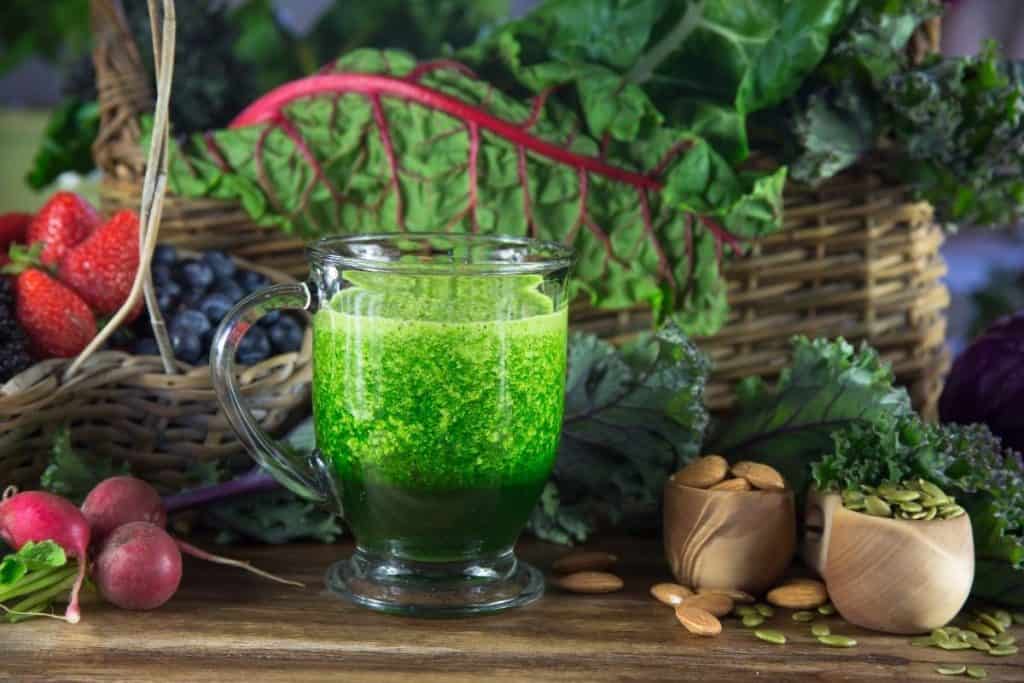
Juice cleanses are good for your digestive system. They allow you to take a break from processed foods, heavy metals and other such junk food that is convenient in our busy lives.
When you switch over to a juice cleanse regimen you will allow your body to heal.
Juice cleanses have been linked with an improvement in digestion, cardiovascular health, weight loss and an increase beneficial gut bacteria.
Is a Juice Fast Healthy?
When we talk about juice cleansing, we are referring to a method where it involves consuming juice for a specific period.
This would vary from person to person and it could typically range from three days to ten days, but serious juice cleansers often cleanse for up to a month at a time.
Those who support and advocate juice cleansing firmly believe that it comes with a number of benefits.
According to them, these are some of the benefits that are quite obvious and evident.
Increased Vitamin and Mineral Intake
Vegetables and fruits are rich sources of naturally occurring minerals and vitamins. Hence, drinking juices in a planned and phased manner may help in introducing extra nutrients into our body.
This could go a long way in helping our bodies to get a boost as far as the overall health is concerned.
Beneficial Anti Inflammatory Factors
Fruit and vegetable juices are well known for their various anti-inflammatory compounds.
These compounds may play a proactive and positive role in giving a big boost to the overall immune system.
It also may help a person to feel healthier, energetic and active.
Toxin Removal
Some professionals who are into different types of juicing plans believe that fruit juices have the capacity of flushing out different types of toxins from the body.
However, there aren’t enough studies to prove whether fruit and vegetable juices do actually help in flushing out toxins from the body.
Digestive Health
Juices also have the capacity of improving digestion of the individuals concerned.
This is because of an increase in healthy gut enzymes and bacteria for improved digestive health.
Dietary interventions leading to increased blood nitric oxide (NO) concentrations may be beneficial in the prevention of heart disease.
Sources of nitric oxide are either the endogenous formation through the endothelial arginine nitric oxide synthase (eNOS) pathway or from dietary sources in form of nitrate.
One of the juices consumed during the juice fast was prepared from green leafy vegetable and one from beetroot, which are both good dietary sources of nitrate
Scientific Reports, Nature research
How Much Juice Should You Drink a Day on a Juice Fast?
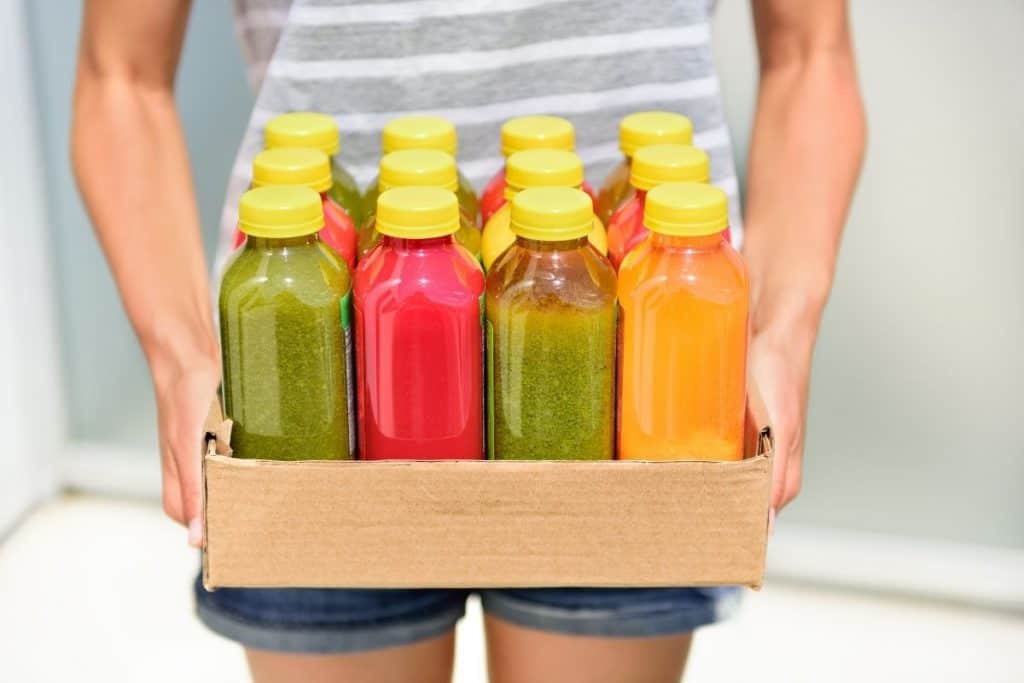
The recommended serving is 16 ounces of juice per serve. You should consume the juice 6 times a day. Here is an example:
- 8am: Celery Juice for Breakfast
- 10am: Mid Morning Juice of Choice
- 12pm: Green Vegetable Juice for lunch
- 2pm: Mid Afternoon Juice of Choice
- 4pm: Late Afternoon Juice of Choice
- 6pm: Protein based juice such as a Nut Based Smoothie
You are free to drink as much water or herbal tea between these six drinks.
This can be done throughout the day and these times are a guide only. You are also at liberty to add one or two more servings if you feel that you need some more sustenance.
However, the six different units of 16 ounces of fruit juices are good enough to ensure that your body gets the required amount of calories and nutrients for a particular day.
Vegetable based juices should be the maximum contributor as far as these 16 ounce servings of juice are concerned. In other words, as delicious as oranges and apples are, they are also quite high in sugar and should not be the base for your juices.
What Are the Recommended Fruits and Vegetables for a Juice Cleanse?
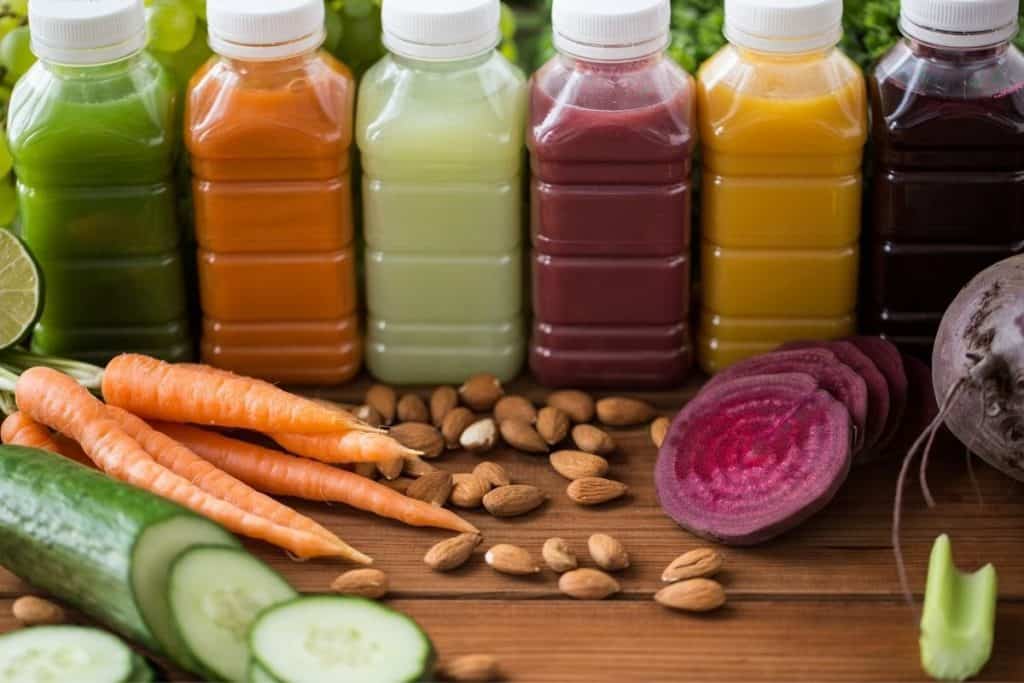
Vegetables to include in a juice cleanse:
- Cucumber
- Kale
- Spinach
- Beetroot
- Celery
- Zucchini
- Ginger
Fruits to include in a juice cleanse:
- Lemons
- Limes
- Raspberries
- Blackberries
- Blueberries
- Kiwi Fruit
- Dark Cherries
- Pineapple
- Apples (occasionally)
Herbs to include in a juice cleanse:
- Tumeric
- Mint
- Rocket
- Parsley
- Cilantro
- Basil
How Many Days Should You Do a Juice Cleanse?
This would vary from person to person, but typically ranges from three days to 10 days. Longer juice cleanses can go for 21 to 28 days.
What Happens If I Eat On a Juice Fast?
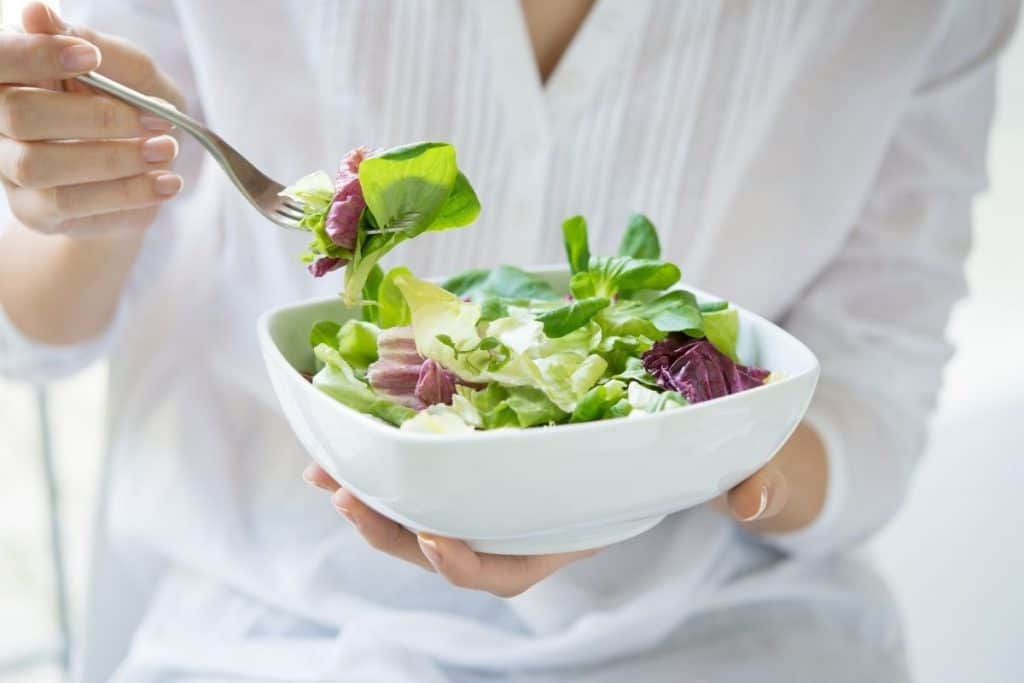
Though staying on course with a juice fast cleansing regimen is without any doubt the best way forward, at times, your body may crave for solid food.
If this happens, don’t beat yourself up. Make a choice that is consistent with your juice cleanse – a salad, some raw or lightly steamed vegetables, nuts or seeds, or a piece of fruit.
Try adding some pulp into your juice to make a thicker juice and keep you feeling fuller for longer.
The idea with a juice cleanse however, is your body absorbs all the wonderful nutrients from juice without having to break anything down. It doesn’t have to work hard to extract nutrients from whole foods. So if you can, keep this in mind and try and stick to your fast.
Can You Drink Coffee on a Juice Cleanse?
If you can’t give up coffee during your juice cleanse then don’t. But you may need to modify how you take your coffee. During your juice cleanse ensure your coffee is black, free from dairy and any added sugar.
What Are the Scientific Benefits of Juicing?
A 2020 study by Nutrients discusses the role of fruits and vegetables in the diet, including drinking juices and the effect on the gut microbiota.
This study focuses on kidney stones, but references the benefits of fruits and vegetables and juicing, through this image below and this quote:
Although not specifically focused on kidney stones, the current literature supports the hypothesis that the beneficial effects of increasing fruits and vegetables or juice intake on the risk of kidney stone disease may be at least in part mediated by changes in gut microbiota composition and metabolic function.
Source
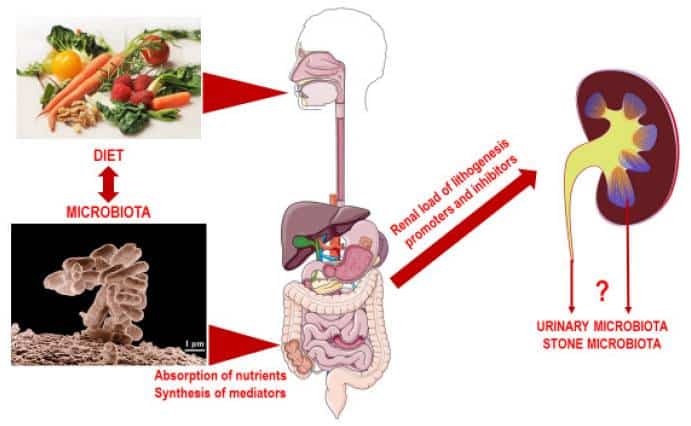
Dietary supplementation with fruit juices that may have positive effects in modulating lithogenesis of kidney stone formers is also associated with increased gut microbiota biodiversity and representation of taxa with health-promoting activities, such as Bifidobacteria.
Consumption of fruit juices is associated with increased fecal and urinary levels of metabolites of microbial origin exhibiting favorable metabolic activities.
Source
What Are the Side Effects of a Juice Cleanse?
Juice cleanse are notoriously low in protein content. This is why it is recommended to drink a nut based milk juice or smoothie once a day during a juice fast.
This helps with getting adequate protein.
Low in calories. In spite of the best mix of fruit cleanse juice, a person may end up consuming only around 800 to 1200 calories though our body may require around 1800 to 2000 calories.
This helps with the weight loss achieved during a juice cleanse, but for really active people, you may find you need to add in some additional calories (in the form of an extra veggie juice).
It may not feel good. If you are new to cleansing, or detoxing from many years of poor food choices you are likely to get some side effects in the first few days.
These include headaches, nausea, dizziness and food cravings. Try and get past this, particularly the psychological aspect of not physically eating food.
Do You Lose Weight on a Juice Cleanse?
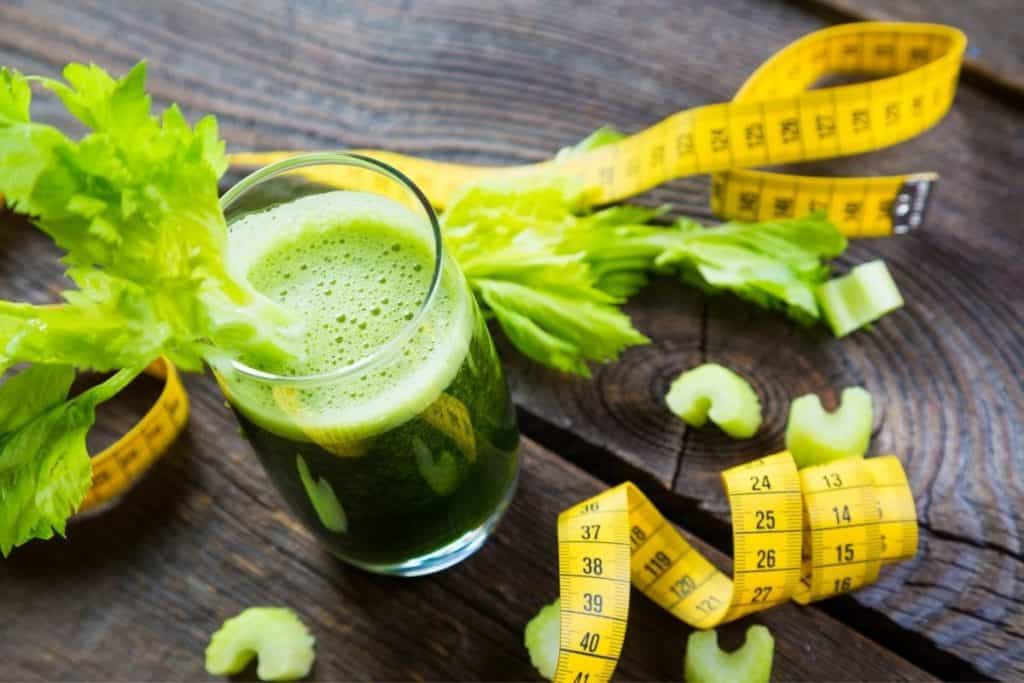
Generally yes. A study by Scientific Reports monitored 15 women and 5 men of mixed race on a 3 day juice cleanse.
An average weight loss of 3.7 pounds was achieved, some participants losing up to 6.4 pounds over the three days.
They were followed up 2 weeks after the study and body weights had remained decreased by an average of 2 pounds.
What To Eat After A Juice Cleanse
Once you are through with your juice cleanse regimen, it is time for you to get back to your normal food habits. Here are a few things that you could do to get started in the right earnest.
- Understand the importance of eating whole foods. You should try and go in for beans, nuts, and other types of organic foods that are totally free from sugar and other preservatives.
- Healthy fats & lots of vegetables and fruits. Aim for two to three servings of vegetables and fruits.
- Keep a watch on your sugar intake. Stay away from refined sugars because they are not easy to digest.
- Keep it light. Reintroduce foods to your body slowly, try soups, salads and light meals in small portions.
Conclusion
There are many factors that are positive about juice cleansing and it does offer some amazing benefits.
There could be some people who may doubt this, and the sustainability of a juice cleanse.
Cleansing is but a tool to help remove built up toxins from your body and hit the reset switch. It is not a way of life and shouldn’t be considered as a long term diet.
Juicing fruits and vegetables in addition to eating healthy meals is a good way to consume extra vitamins and nutrients our bodies need.

